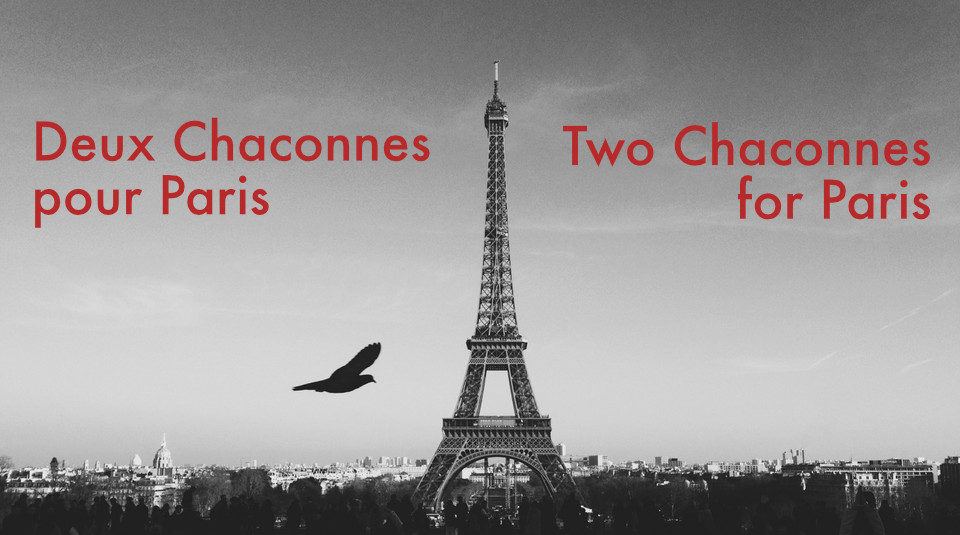
Two Chaconnes for Paris
In memory of the victims of the terrorist attacks in Paris, on 13.11.2015
As the horrible events in Paris on the night of 13.11.2015 were unfolding, I saw the following Leonard Bernstein quote tweeted by Classic FM:

"This will be our reply to violence: to make music more intensely, more beautifully, more devotedly than ever before." – Leonard Bernstein
At first I thought it was a platitude (albeit one that sounded strong) which stemmed from impotence: what else could we do as musicians in face of violence and destruction? But thinking of it, I realised Bernstein was right on at least two levels—music, and any art, can express the strongest of emotions, ones we might not be able to express in words there and then; it can help release some of the anger within ourselves, it can console and support. But also, music, and any art, by the very fact of creating, of bringing something new into the world, is in opposition to any force which comes to kill, destroy and terrorise.
This is, then, my response as a pianist to these attacks—the performance of two chaconnes. A chaconne is a funeral dance of Spanish origin, which several classical composers have turned to in order to express their thoughts on death. The first one, by Sofia Gubaidulina, written in 1962, is for me all about non-acceptance of death; it’s searing, raging, furious, full of anger which I perceive as righteous, anger at a death which is unjust, untimely, wrong. Bach’s Chaconne is much deeper and broader in scope; I see it as a full life encompassed in 15 minutes, a piece of music which celebrates that life and which accepts and embraces death, and ultimately overcomes and transcends it.
The Bach was recorded at a concert in the very centre of Paris about half a year ago, the Gubaidulina last night, at home.